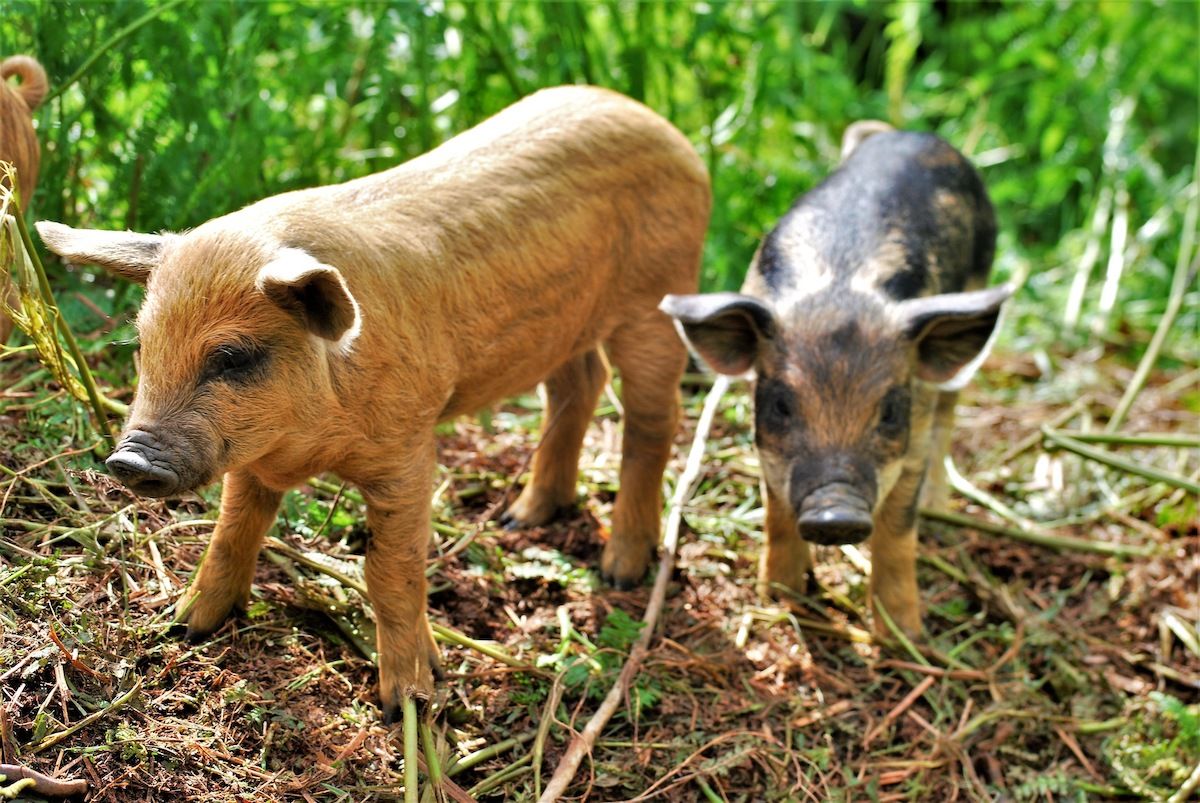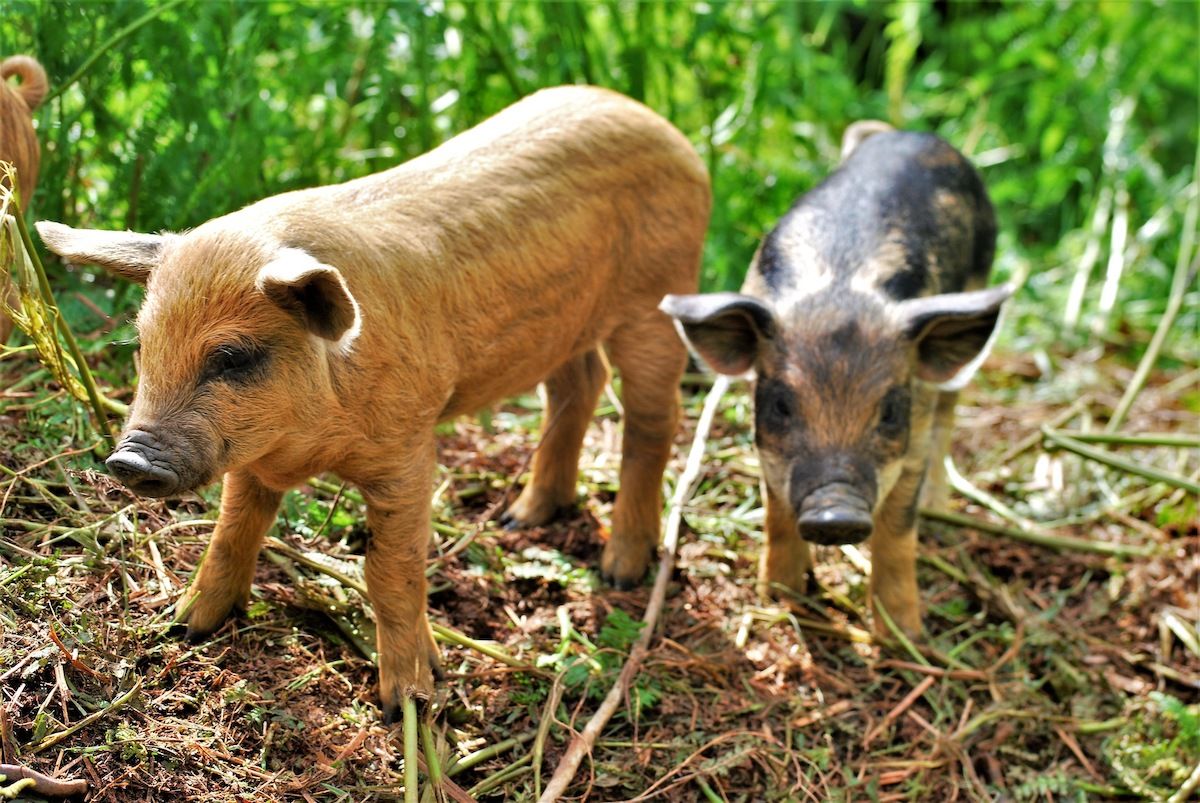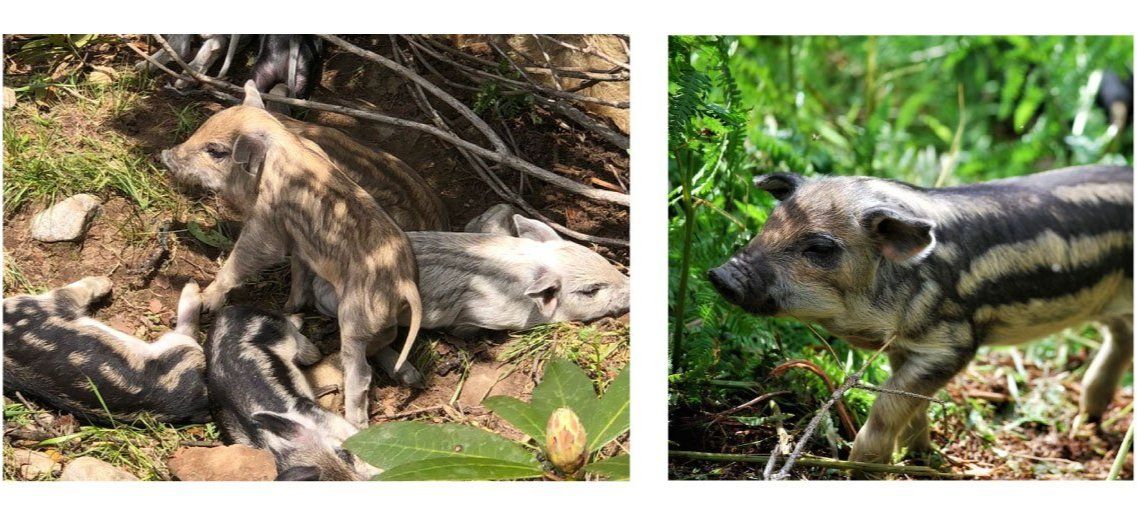Newborn piglets will help with forest development in Scotland
We've had a busy month, the highlight being that we've had lots of new piglets born in the forest, almost doubling the size of our herd

Just the gist
If you're in a hurry, here's what you need to know this month:
- Lots of new piglets have been born, doubling the size of the herd.
- These pigs are an important part of the project because they eat weeds, invasive species, spread manure, and trample ground for easier tree planting.
For more updates like this one, follow Wren on Twitter and Instagram.
Jade:
"We've had a very busy month at The Future Forest Company, the highlight being that we've had lots of new piglets born in the forest, almost doubling the size of our herd. These piglets are colloquially called 'humbugs' because their stripes make them look like the traditional British hard boiled candy!

The pigs are crucial for us in growing a healthy forest; they eat weeds and invasive species, trample the ground to prepare for planting trees and spread manure. They will spend their whole lives in the forest, which is their natural habitat. It's really important to us that they are born in the forest in the most natural way possible too.
Our sows have a completely natural birth (called farrowing) - they are free to roam the forest where they construct elaborate nests as they would do in the wild, then they are left to give birth without intervention where at all possible. This is much less stressful than in traditional indoor pig farming where the sows are often kept in small steel farrowing crates."

"Our piglets will be kept with their mothers until they are fully weaned, and then the males will be moved across the site to live with their dad and the other boars so we can plan their breeding. The piglets are reliant on milk from their mothers initially but within a few days of being born they start foraging and adding to their diet. At about 8 weeks they naturally wean and can largely feed themselves through foraging. They are omnivores so will eat pretty much whatever they find: leaves, herbs, grasses and shallow roots. They are growing fast and they're all healthy and enjoying life in the forest."
"Some of the pigs have now shed their thick woolly winter coat so they look a little more like pigs and a little less like sheep for the summer!"
- Jade Read
Your support means a lot. Sequestering carbon is key to curbing global warming, and this project is developing the most efficient way to sequester huge volumes of CO2 in limited space. With your help, we can spread the model to thousands more hectares. 🧡
- The Wren Team

